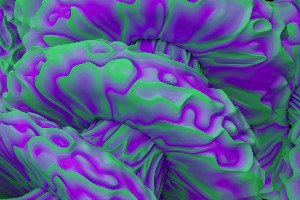zachary schroeder
Nietzsche’s Philosophy of Political Authenticity as the Key to “Real” Democracy
Introduction
Nietzsche’s philosophy of political authenticity as the key to “real” democracy . Uncover Nietzsche's philosophy of political authenticity as the key to "real" democracy. This analysis interprets his critiques via inversion, revealing an authentic democratic alternative.
Abstract
Despite several decades of attempts to interpret and articulate Nietzsche’s political thought, especially its relationship with democracy, there seems to be no convergence in sight. While this might be easily written off as a consequence of that thinker’s tendency for ambiguity and contradiction, I contend that there is in fact a central pillar of Nietzsche’s political philosophy, authenticity. I extract this central emphasis on authenticity by offering a fresh methodological approach. This approach draws our focus to Nietzsche’s technique of inversion as it applies to his critiques of democracy. Nietzsche’s criticism draws us to the core of the tension between his own philosophical project and the reality of democracy in his time. This subsequently reveals what would make for an authentic democracy faithful to Nietzsche’s core philosophical commitments. The gist of Nietzsche’s criticism of democracy is that it is not, in fact, democracy. Yet, as I show, this is not simply critical, as Nietzsche offers an alternative in the wake of this characteristic inversion. This inversion complicates our understanding of the democratic citizen, their needs, and capabilities. As such, I venture to trace the roots of his criticism, how the problem he raises affects contemporary politics, and what his proposed solution in the form of a commitment to authenticity would look like. In the end, I argue that this focus on authenticity as a central pillar of Nietzsche’s political thought will not only clarify his use for political philosophy but serve as a powerful resource for political theorists looking to use his work to think about democracy.
Review
This paper proposes an ambitious and timely re-evaluation of Nietzsche’s political philosophy, particularly concerning his relationship with democracy. Acknowledging the enduring interpretive challenges and lack of consensus in Nietzsche scholarship, the author posits "authenticity" as a crucial, unifying pillar of his political thought. The central contention is that a fresh methodological approach, focusing on Nietzsche’s technique of "inversion" in his critiques of democracy, will unveil not merely a destructive critic, but a thinker offering an alternative vision for an "authentic democracy." This approach promises to clarify Nietzsche’s nuanced engagement with the concept of the democratic citizen and provide a valuable resource for contemporary political theorists. The proposed methodology of employing "inversion" as a hermeneutical key is particularly promising. By examining how Nietzsche’s criticisms paradoxically point towards an underlying ideal, the paper aims to move beyond superficial readings that often dismiss his political thought as merely anti-democratic. The identification of "authenticity" as the core concept offers a compelling lens through which to unify disparate aspects of Nietzsche’s work and demonstrate its constructive potential for political philosophy. If successful, this reinterpretation could significantly advance our understanding of Nietzsche's nuanced position, presenting his critiques as not just condemnations of existing forms but as foundational for a more genuine, albeit challenging, conception of democracy. While the abstract outlines a compelling project, the full paper will need to meticulously address several critical points. Foremost among these is the precise definition and robust defense of "Nietzschean authenticity" itself, ensuring it is clearly differentiated from more conventional or anachronistic understandings, and how it translates from a philosophical ideal into a viable "real" democracy. The argument will also need to carefully navigate the potentially problematic aspects of Nietzsche’s thought, such as his aristocratic radicalism, to convincingly demonstrate how a commitment to "authenticity" can inform a truly democratic project without inadvertently reinforcing elitist or illiberal tendencies. Finally, the proposed link to "contemporary politics" will require careful argumentation to ensure its relevance and applicability are not overstated or oversimplified.
Full Text
You need to be logged in to view the full text and Download file of this article - Nietzsche’s Philosophy of Political Authenticity as the Key to “Real” Democracy from The Agonist .
Login to View Full Text And DownloadComments
You need to be logged in to post a comment.
Top Blogs by Rating
The Microscopic Masterminds: D...
By Sciaria
The Earth's Perfume: Decoding...
By Sciaria
Your Dynamic DNA: The Adapting...
By Sciaria
Favorite Blog
Digitalization: Mastering the...
By Sciaria
Beyond Buzzwords: Is Your Mark...
By Sciaria
The Brain's Ultimate Illusioni...
By Sciaria
Related Research
Role of the parents in the exercise of the child’s right to freedom of thought, conscience and religion
Analysis of political reciprocity in the coalition strategy of prabowo-gibran in the 2024 general election
Social support for parents of children with leukemia
Share
Notice Board
- EFFECT OF SUSTAINABLE HRM PRACTICE ON ORGANIZATIONAL PERFORMANCE MEDIATED BY KNOWLEDGE MANAGEMENT, WORK ENGAGEMENT AND ORGANIZATIONAL CULTURE
- PENEGAKAN HUKUM KEIMIGRASIAN SEJALAN DENGAN PELAKSANAAN SELECTIVE POLICY TERHADAP ORANG ASING DARI NEGARA CALLING VISA
- FATA MORGANA AEGYPTIACA – LOUIS BEAULIEUS LETTRE à MONSIEUR J*** UND DIE WIEDERENTDECKTEN ROSENEGGERIANA





